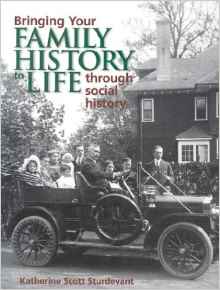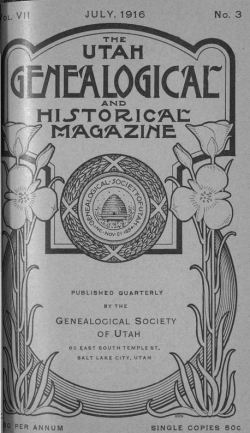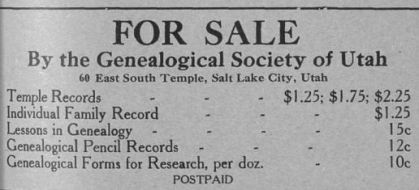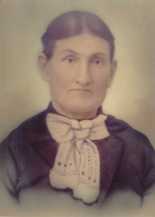This month’s Genealogy Blog Potluck Picnic hosted by Little Bites of Life really got me thinking. A favorite genealogical resource? I have so many! I couldn’t pick just one so I went with a subject that I love and that is using social history to add flesh to the bones of our ancestors. It’s one of my favorite topics! So here is my contribution to August’s Genealogy Blog Potluck Picnic.
One of the first books I read when I was starting out in the genealogy field many years ago was Bringing Your Family History to Life through Social History by Katherine Scott Sturdevant. Up until this point I had been happily gathering names and dates and populating my tree that way. I had not devoted much time or thought to looking beyond those names and dates. Reading this book was eye-opening for me. I wanted to know my ancestors and one way to do that was to place them in social, historical and cultural perspective and look at how that might have affected their lives and the decisions they made.

I recently went searching for this book again only to find it is out of print. My small local library (making friends with your local librarian is a very good thing to do!) went above and beyond and located a copy which is sitting on my desk as I type this. I am amazed at how far things have progressed since 2000 when the book was published. The internet has opened up an almost limitless supply of social history resources. There are now more journals, books, magazines, websites and blogs devoted to helping us make our family history come alive than ever before.
Below are some of my favorite social history resources, in no particular order:
- Newspapers
There is nothing quite as thrilling as finding your ancestor’s name in the newspaper. But more than that, reading newspapers from the time period that your ancestor lived in, and in the particular place they lived, allow us a glimpse into what was happening around them. Some of the sites that I have found success with:
GenealogyBank
Chronicling America
British Newspaper Archive
Google News
This is a new resource for me. It is a portal to numerous museums, archives and libraries which have content online. DPLA gathers those resources and then connects you directly to those sites. You can search by date, place, timeline or map. I could easily spend hours on this site!
- Library of Congress – Social History resources
There is so much to explore on the Library of Congress site. Efforts to use social history in our research is enhanced by photos, audio recordings, film, maps, newspapers, books, drawings, poetry, and manuscripts, all available here.
I can’t say enough about the FamilySearch Wiki. I think it’s a very underutilized resource. Not only does the Wiki direct you to where genealogical records are but put in a locality and it will give you the history, show you maps and migration routes, direct you on how to research in that locality, show you historical resources available like county histories and journal articles. I use the FamilySearch Wiki frequently and still discover new information each time.
- Local Historical and Genealogical Societies have a wealth of information.
A few months ago I contacted the Butte Historical Society looking for some information on an ancestor. Within a few days I had a reply and within a week I had 11 pages of information that I had not had before and which was not available online.
For UK and Ireland resources. Their county histories, gazetteers and maps are of particular interest.
- U.S. State Archives.
Simply google your state + ‘archives’ and you will find links to all kinds of social history information available online for your particular state
A great resource for finding historical maps. They also have a large collection of British travel writing which is searchable by town name to see what may have written about the town or city your ancestor lived in.
- Historical Diaries and Journals.
I am not fortunate enough to have an ancestor who kept a journal or diary that survived until today. If you are, then you know what an incredible resource that is. Journals kept by our ancestors contemporaries can add an understanding to their daily lives. These are a few sites I have used recently and found to be very useful. There are many more available online.
- Harvard University Library Open Collections Program ‘ Women Working, 1800 – 1930’
- Documenting the American South (diaries, memoirs, and ex-slave narratives)
- Emigrant Diaries and Journals
- Trails of Hope: Overland Diaries and Letters, 1846-1869
- Operation War Diary (Diaries of the British Army on the Western Front, 1st World War)
Recently I was looking for background on one of my husband’s ancestors born in 1846 in Mount Pisgah, Iowa. Using the FamilySearch Wiki I was directed to FamilySearch Books Online. I was able to locate an article from the Utah Genealogical and Historical magazine published in 1916, titled ‘Mount Pisgah : history of a temporary settlement of the “Mormons” while on their westward journey’, by Andrew Jenson.

Although the article does not mention my husband’s ancestor by name it does give some historical background to the time period she was born in and the events happening around her. In February 1846 the Latter-Day Saints in Nauvoo, Illinois were forced to flee with few provisions to protect them from the harsh winter conditions. Mount Pisgah, Iowa became a temporary stopping point on their journey west. Susan Content Boyce was born in September 1846 in Mount Pisgah. Finding a resource such as this 1916 article helps to place her birth in its’ historical context. Susan’s mother would have been about 2 months pregnant when the family was forced to leave Nauvoo, and 7 months later likely gave birth in a wagon as there were no structures built yet. The article describes the land as being ‘primitive and wild’ and that ‘the lack of proper shelter, provision and food’ resulted in many deaths within the first 6 months.

Using this resource has given me a better understanding of the events surrounding the birth of Susan Content Boyce, adding depth to her life story and that of her mother.
Looking through this 1916 publication it was also fun to see that the Genealogical Society of Utah would give you a lesson in genealogy for just 15c!

It’s important to remember that while we as genealogists strive for proof based accuracy in our research, social history provides context but cannot be stated as absolute facts. We don’t know for sure how our great-grandmother felt as she worked in an airplane factory during the Second World War but social history sources describing women during this time allow us to think about how she ‘possibly’ may have felt. Just as I can’t know how Susan Content Boyce’s mother must have felt at the time she gave birth, descriptions of the living conditions and events happening around her, help to add depth and color to her story.



Thanks for recommending the book, Bringing Your Family History to Life through Social History. I have received a used copy and am enjoying the book!
LikeLike
Congratulations, Sue! Your post was the top vote-getter for the August Genealogy Blog Party! Thank you for participating, and for sharing these great resources. I can tell by the comments that you have already helped several other genealogists with your recommendations. 🙂
LikeLiked by 1 person
Thank you Elizabeth! 🙂
LikeLike
First, thanks for you plug for libraries and librarians 🙂 As a librarian, I sure appreciate it!
Thanks also for mentioning that book – I’m going to see if I can find it on ILL here 🙂 Your list of links is great as well. Social history is fascinating in its own right, and even better when we can use it in our genealogical writing.
LikeLiked by 1 person
I love my local librarians! 🙂 Thanks for stopping by and leaving a comment. I hope you do find the book – it’s a bit out of date now with so much being available online but it’s still a great resource!
LikeLike
Glad you shared some of these resources–I love digging through local newspapers but haven’t investigated the Library of Congress’s many possibilities. Yet. I was lucky enough to connect with a distant (really distant) cousin who shared the transcription of an in-law’s diary written while riding in a wagon train to California during the Gold Rush era. Thrilling!
LikeLiked by 1 person
How lucky to have something like that to add to your research! I hold out hope that some distant cousin of mine will be found with a few family diaries to share! I can hope right 🙂 Thanks for your comment Marian!
LikeLike
Thanks for sharing! I now have DPLA and GENUKI saved in my bookmarks. I enjoyed reading your post.
LikeLiked by 1 person
I get lost easily exploring DPLA so be warned 🙂 Thanks for your comment!
LikeLike
Thank you for your introduction to social history and for the many resources you cite. As a result, I added DPLA and a site for North Dakota town histories to my digital toolbox.
LikeLiked by 1 person
Thanks for stopping by Wanda! I am really loving learning all about the DPLA as a resource. I’ve watched a couple of their webinars and realized I’ve only scratched the surface there! 🙂
LikeLike
Social history is so important, not only for putting family decisions into context, but also for giving great glimpses into their daily lives. Great suggestions.
LikeLiked by 1 person
I love to use social history as a way to try to understand and come to know my ancestors better. Thanks for stopping by Linda!
LikeLike